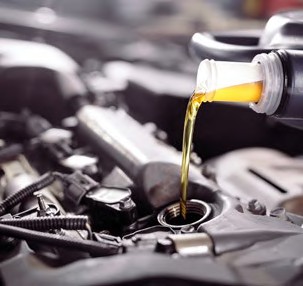Important things to know about engine oils
Q Can I add additives in oil?
A The components of lubricants have been proportioned to reach an optimum result and therefore no post-production additives are recommended to be added.
Q Can I put in my gear-box the same oil as in my engine?
A The correct oil to be used is recommended by the manufacturer. Follow this recommendation. It is only in 4 stroke motorcycle where one product lubricates all the components (clutch, gearbox and engine).
Q Can I use diesel engine oil in a petrol engine, and vice versa?
Petrol and diesel engines have different lubrication requirements. During development, lubricants undergo a number of tests, some common to diesel and petrol engines and others specific to one or the other type, that categorize their performances. At the end of this process, they are awarded an API, ACEA or JASO compliance standard. These specifications characterize the acceptable functioning of the lubricant in each type of petrol or diesel engine. Lubricants for four-stroke engines usually comply with both petrol and diesel specifications. For example, an API SJ/CF-4lubricant meets petrol specification API SJ and diesel specification API CF-4.
Q Can I mix two different types of oil?
A Lubricants are always optimized to meet the requirements of international classifications. However, there are many ways of formulating a specific type of lubricant. Mixing two oils that have equivalent properties will not pose a problem, but final performance cannot be guaranteed. All engine oils (petrol engine or diesel, mineral or synthetic) are mixable. However, mixing of two oil qualities lowers the superior quality.
Q What causes oil pressure to drop?
A During normal vehicle operation, oil is vital to ensure effective sealing between the combustion chamber, the crankcase and valve guides. The oil pressure indicator shows how well this is being done.
An unusual drop in oil pressure can result from either lower engine oil viscosity due to dilution by fuel (injector problem or use at low load); too little oil in the lubrication system (due to an oil leak, excess oil consumption, or failure of the oil circulation pump); or even mechanical part wear.
Q Does the oil have to be topped up?
The engine oil level should be checked regularly to ensure sufficient lubrication of the engine. A small amount of oil is lost due to oxidation occurring within the engine which can be offset by top-ups between oil changes; however, excessive need for top-ups can be an indication of mechanical problems (leaks, etc).
Q What is the advantage of keeping up with the new technologies?
With respect to technology, engine lubricants must consistently evolve toward higher performance levels linked to engine advances, application, manufacturer requirements, and requirements of users and law-makers like:

SOURCE | SHUTTERSTOCK / DAVID TADEVOSIAN
• More stringent environmental requirements,
• Demand for higher in engine power,
• Lower oil crankcase capacities,
• Change in thickness between engine bore and piston,
• Need for longer ODI (Oil Drain Intervals)
Q Which oil should we use in turbo compressed vehicles?
A In order to fulfil the lubrication and shaft cooling needs of the turbocompressor, oil must answer to very strict criteria. The shaft reaches a very high temperature due to the proximity of the exhaust gasses and very fast revolution. Oil must lubricate the shaft continuously otherwise the high temperatures would permanently damage it.
These conditions mean the oil has to offer considerable detergent property (an important resistance to oxidization and deposit formation) and very high a thermal stability. The use of premium mineral and synthetic oils is therefore the most recommended solution in these conditions. .
This article is courtesy of TotalEnergies Marketing Kenya. They can be reached via; customerservice@totalenergies.ke